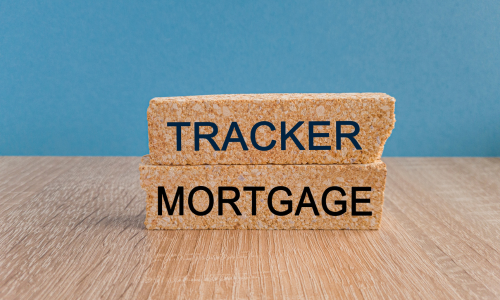
What is a Tracker Mortgage?
A tracker mortgage is a type of variable-rate mortgage where the interest rate follows, or "tracks," the Bank of England base rate (or another benchmark), plus a set percentage. As the base rate changes, your mortgage interest rate and monthly payments automatically adjust in line.
For example, if the base rate is 0.5% and your tracker margin is +2%, your mortgage rate would be 2.5%. If the base rate rises to 1%, your mortgage rate would increase to 3%.
How Does a Tracker Mortgage Work?
Tracker mortgages rise or fall in line with the base rate. If the base rate increases, your mortgage interest rate, and your monthly payments go up. If it falls, your payments reduce. However, many tracker mortgages include a minimum rate (or "collar"), meaning your rate won’t fall below a set level even if the base rate does.
Tracker deals typically last 2 to 5 years, after which most borrowers are moved onto the lender’s Standard Variable Rate (SVR) – usually higher unless they remortgage.
Example:
Base rate = 0.5%
Tracker rate = base rate + 2%
Mortgage rate = 2.5%
If the base rate rises to 1%, the mortgage rate becomes 3%.
The Pros of a Tracker Mortgage
- Transparency and Predictability: Tracker mortgages follow a published rate – the Bank of England base rate – so changes are easier to anticipate.
- Potential for Lower Rates: In a low interest rate environment, tracker mortgages can offer cheaper monthly payments than fixed-rate options.
- Flexibility: Some tracker deals allow overpayments, lump sums, or early repayment without penalties, though this depends on the lender and product.
The Cons of a Tracker Mortgage
- Risk of Interest Rate Increases: If the base rate rises, your payments will increase, potentially sharply, making budgeting harder.
- Uncertainty: The base rate can fluctuate due to economic conditions, making monthly payments unpredictable over time.
- May Include a Collar or Cap: Some tracker mortgages include a minimum or maximum rate limit which can reduce benefits if the base rate falls significantly or rises sharply.
- Not for Everyone: If you prefer payment certainty or are risk-averse, a fixed-rate mortgage may suit you better.
Are Tracker Mortgages Right for You?
A tracker mortgage can be a good choice if you’re comfortable with fluctuating payments and confident you can absorb possible rate increases. They often suit borrowers who expect rates to remain stable or fall and want the flexibility to overpay without penalty.
However, if you need predictable monthly costs or worry about interest rate volatility, a fixed-rate deal may be a safer option. Always check for early repayment charges, collars, or caps before committing.
Thinking about a tracker mortgage or comparing options? Contact us today for expert advice tailored to your situation


